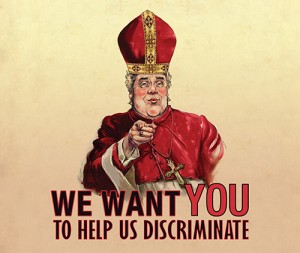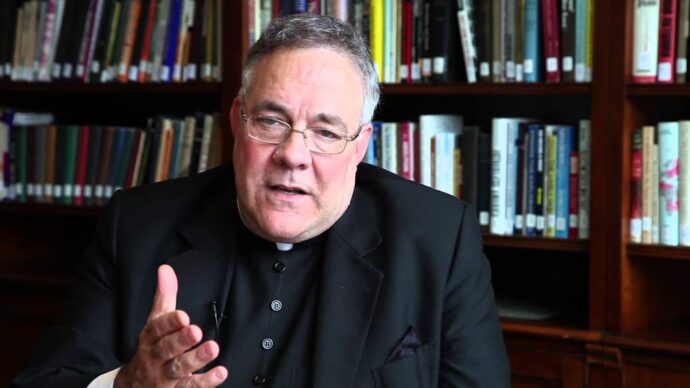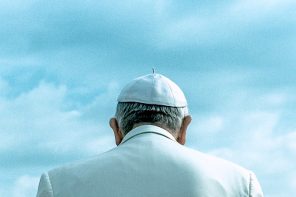Conservative Catholics are working overtime to downplay the radical nature of Laudato si, the pope’s encyclical that offers a sweeping condemnation of the free-market, libertarian Catholicism that has largely overtaken the institutional church in the US.
In its weekly email newsletter, the Diocese of Arlington, Virginia, which is one of the more conservative in the country, distills Francis’ seminal encyclical into the headline “Pope Francis Shares Tips on Protecting the Environment” and offers these helpful suggestions, apparently circa the Carter Administration, as the key takeaways:
Plant a tree. Take mass transit. Car pool. Turn off the lights when you leave the room. Chilly? Wear a sweater.
The Acton Institute’s Father Robert Sirico, one of the more aggressive advocates of the marriage of unfettered, laissez-faire capitalism and Catholicism, tries to reframe the encyclical as supporting the idea that a free market economy is the best way to be responsible stewards of the environment and serve the needs of the poor.
Where Pope Francis talks lyrically about restoring balance with “brother sun, sister moon, brother river and mother earth” through a complete rethinking of how we use resources and prioritize market efficiencies, Sirico’s poetry is saved for the market economy and the science of economics, which “enables us to allocate scarce recourses, reduce waste and externalities and realize true sustainability through voluntary trade.” It’s less Canticle of the Sun, and more Canticle of the Sum. But that’s to be expected from an organization partly funded by the oil industry itself.
Meanwhile, the response from the US leadership of the church to Francis’ urgent plea for action has been noticeably muted. Mark Silk reports that at the U.S. Conference of Catholic Bishops’ eagerly anticipated presser on the encyclical last week, Washington Cardinal Donald Wuerl and other leaders seemed to go out of their way to tone down Francis’ message:
Where Francis denounced ‘an efficiency-driven paradigm of technocracy,’ Wuerl talked about his gentle ‘invitation to everyone to join him in conversation.’ Where Francis demanded a a swift reduction in carbon emissions, Wuerl talked about the beginning of a long process of absorbing what he had to say. ‘He is not saying to individuals, you must do this,’ said the cardinal. ‘That doesn’t appear in the document. He is saying, here is the moral frame of reference.’
The bishops’ lack of enthusiasm for the encyclical isn’t surprising given that the topic of the environment wasn’t even mentioned as a priority at their recent semi-annual meeting, according to Laurie Goodstein, who noted in the Times that only 40 of 250 bishops showed up for a workshop on Laudato si.
Instead, the bishops voted to concentrate on—wait for it—sex and marriage-related issues and “religious freedom,” which is also focused on the pelvic zone. And as if to prove how tone-deaf they are, on Sunday the U.S. Conference of Catholic Bishops kicked off its fourth annual “Fortnight for Freedom” religious liberty extravaganza, which runs through July 4.
Surprisingly (for an event that marries an archaic English expression to a vague nod to American Independence and Catholic martyrs in order to gin up support for discriminating against gay people and women), the event has failed to catch on with rank-and-file Catholics.
Jon O’Brien, head of Catholics for Choice, which unveiled a front-page ad on Monday in the Washington Post’s Express commuter daily, was among the Fortnight’s critics. “It’s more to be pitied than to be laughed at, it’s not as if they actually have this legion of Catholics behind them,” he said. “Catholics don’t want the persecution of gay teachers at Catholic schools or women who are victims of sex trafficking to be denied emergency contraception.”
The real concern, says O’Brien, is that both politicial parties take the bishops seriously when they complain about religious discrimination and bend over backwards to offer exemptions that are eroding the seperation of church and state.
“The bishops are manufacturing their own truth so they can sell it to the political establishment,” he said. The bigger question in the long run is whose truth will win out: the pope’s or the bishops’?





